
Steel is an alloy made up of iron with typically a few tenths of a percent of carbon to improve its strength and fracture resistance compared to other forms of iron. Many other elements may be present or added. Stainless steels that are corrosion- and oxidation-resistant need typically an additional 11% chromium. Because of its high tensile strength and low cost, steel is used in buildings, infrastructure, tools, ships, trains, cars, machines, electrical appliances, weapons, and rockets. Iron is the base metal of steel. Depending on the temperature, it can take two crystalline forms : body-centred cubic and face-centred cubic. The interaction of the allotropes of iron with the alloying elements, primarily carbon, gives steel and cast iron their range of unique properties.
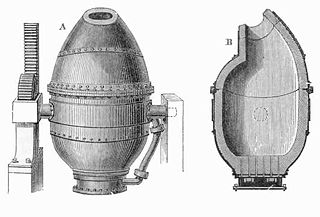
The Bessemer process was the first inexpensive industrial process for the mass production of steel from molten pig iron before the development of the open hearth furnace. The key principle is removal of impurities from the iron by oxidation with air being blown through the molten iron. The oxidation also raises the temperature of the iron mass and keeps it molten.

Cast iron is a group of iron–carbon alloys with a carbon content more than 2%. Its usefulness derives from its relatively low melting temperature. The alloy constituents affect its color when fractured: white cast iron has carbide impurities which allow cracks to pass straight through, grey cast iron has graphite flakes which deflect a passing crack and initiate countless new cracks as the material breaks, and ductile cast iron has spherical graphite "nodules" which stop the crack from further progressing.

Mo i Rana is a city, and the administrative centre of the municipality of Rana, in Nordland county, Norway. It is located in the Helgeland region of Nordland, just south of the Arctic Circle. Some of the city's suburbs include Båsmoen and Ytteren in the north, Selfors in the east, and Åga/Hauknes/Dalsgrenda in the south.
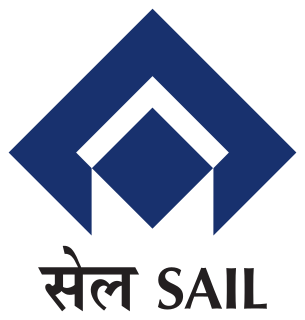
Steel Authority of India Limited (SAIL) is a government owned steel producer based in New Delhi, India. It is under the ownership of Ministry of Steel, Government of India with an annual turnover of INR 68,452 Crore for fiscal year 2020–21. Incorporated on 24 January 1973, SAIL has 62,181 employees. With an annual production of 16.30 million metric tons, SAIL is the 20th largest steel producer in the world and the largest in India. The Hot Metal production capacity of the company will further increase and is expected to reach a level of 50 million tonnes per annum by 2025.

POSCO is a South Korean steel-making company headquartered in Pohang, South Korea. It had an output of 42,000,000 metric tons of crude steel in 2015, making it the world's fourth-largest steelmaker by this measure. In 2010, it was the world's largest steel manufacturing company by market value. Also, in 2012, it was named as the 146th world's largest corporations by the Fortune Global 500.
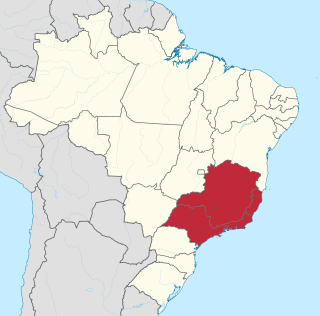
The Southeast Region of Brazil is composed of the states of Espírito Santo, Minas Gerais, Rio de Janeiro and São Paulo. It is the richest region of the country, responsible for approximately 60% of the Brazilian GDP, as São Paulo, Rio de Janeiro, and Minas Gerais are the three richest states of Brazil, the top three Brazilian states in terms of GDP. The Southeast of Brazil also has the highest GDP per capita among all Brazilian regions.

The Doce River is a river in southeast Brazil with a length of 853 kilometres (530 mi). The river basin is economically important. In 2015 the collapse of a dam released highly contaminated water from mining into the river, causing an ecological disaster.
Ferroalloy refers to various alloys of iron with a high proportion of one or more other elements such as manganese (Mn), aluminium (Al), or silicon (Si). They are used in the production of steels and alloys. The alloys impart distinctive qualities to steel and cast iron or serve important functions during production and are, therefore, closely associated with the iron and steel industry, the leading consumer of ferroalloys. The leading producers of ferroalloys in 2014 were China, South Africa, India, Russia and Kazakhstan, which accounted for 84% of the world production. World production of ferroalloys was estimated as 52.8 million tonnes in 2015.

Vale S.A. is a Brazilian multinational corporation engaged in metals and mining and one of the largest logistics operators in Brazil.

Companhia Siderúrgica Nacional (CSN) lit. 'National Siderurgy Company' or 'National Steel Company' is the largest fully integrated steel producer in Brazil and one of the largest in Latin America in terms of crude steel production. Its main plant is located in the city of Volta Redonda, in the state of Rio de Janeiro. Its current CEO is Benjamin Steinbruch.
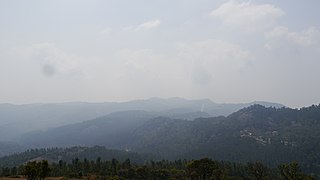
Salem District is one of the 38 districts of Tamil Nadu state in southern India. The district is now divided into Dharmapuri, Krishnagiri, Namakkal as individual districts. Salem is the district headquarters and other major towns in the district include Mettur, Thammampatti, Attur, Omalur, Sankagiri and Edappadi. That Salem dates to at least two thousand years ago is evident from the discovery of silver coins from the Roman Emperor Nero Claudius Caesar Augustus Germanicus found by Koneripatti of Salem in 1987. It was ruled by Mazhavar King Kolli Mazhavan and kings Adhiyaman and Valvil Ori of Sangam age. It is part of Kongu Nadu and Mazhanadu, a vast region that dates to the 2nd century BCE. Salem was the largest district of Tamil Nadu. It was bifurcated into Salem and Dharmapuri districts in 1965 and Namakkal district in 1997. Now Salem has been developed a lot by building many bridges and is considered to be the smart city. Salem is famous for cultivating mangoes.

Rautaruukki Oyj using the marketing name Ruukki is a Finnish company, headquartered in Helsinki, which manufactures and supplies metal-based components and systems to the construction and engineering industries. In 2014 Swedish SSAB bought Ruukki.

Brazilian industry has its earliest origin in workshops dating from the beginning of the 19th century. Most of the country's industrial establishments appeared in the Brazilian southeast, and, according to the Commerce, Agriculture, Factories and Navigation Joint, 77 establishments registered between 1808 and 1840 were classified as "factories" or "manufacturers". However, most, about 56 establishments, would be considered workshops by today's standards, directed toward the production of soap and tallow candles, snuff, spinning and weaving, foods, melting of iron and metals, wool and silk, amongst others. They used both slaves and free laborers.

The Dunderland Line was a 23.7 km (14.7 mi) railway line between Gullsmedvik in the town of Mo i Rana and the village of Storforshei in Rana Municipality in Nordland county, Norway. Since 1942 the line has been part of the Nordland Line. The line was originally built and owned by Dunderland Iron Ore Company, which used it to freight iron ore from their mine at Storforshei to the port at Gullsmedvik.
VISA Steel Limited is a mineral and metals company situated in the Kalinganagar industrial complex of Jajpur Odisha, India with a 1.5 million ton integrated special and stainless steel manufacturing plant. VISA Steel has its registered office in Bhubaneswar; corporate office in Kolkata and Branch offices across India. A listed company, VISA Steel’s shares are traded on the BSE and NSE.

Metal production, in particular iron and steel industry, is the dominant heavy industry in Ukraine. Ukraine is the world's eighth largest producer and third largest exporter of iron and steel (2007). Ukrainian iron and steel industry accounts for around 2% of worldwide crude steel output, 5% to 6% of the national gross domestic product and 34% of Ukrainian export revenue. In 2007 it employed 420,000 people – 10% of industrial labor and 2% of the total workforce. It has the highest, by a wide margin, revealed comparative advantage of all branches of the Ukrainian economy. The industry peaked at 42.8 million tonnes in 2007 but has been gravely affected by the financial crisis of 2007–2010 and declined to 29.8 million tonnes in 2009.
Electrotherm (India) Limited was founded in 1983 to cater to the needs of all segments of steel industry, foundries and heat treatment industry. Today, Electrotherm is a diversified conglomerate having businesses in the field of Engineering & Projects catering to steel and foundry industry; transformer manufacturing; steel making; ductile iron pipe making; manufacturing of battery operated vehicles; renewable energy; transmission line tower and education.
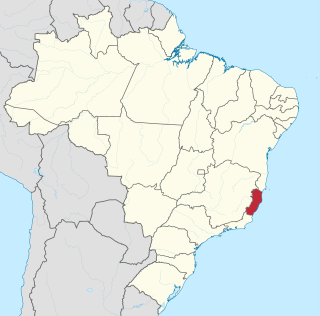
Espírito Santo is a state in southeastern Brazil. Its capital is Vitória, and its largest city is Serra. With an extensive coastline, the state hosts some of the country's main ports, and its beaches are significant tourist attractions.
In 2014, the United States was the world’s third-largest producer of raw steel, and the sixth-largest producer of pig iron. The industry produced 29 million metric tons of pig iron and 88 million tons of steel. Most iron and steel in the United States is now made from iron and steel scrap, rather than iron ore. The United States is also a major importer of iron and steel, as well as iron and steel products.

















